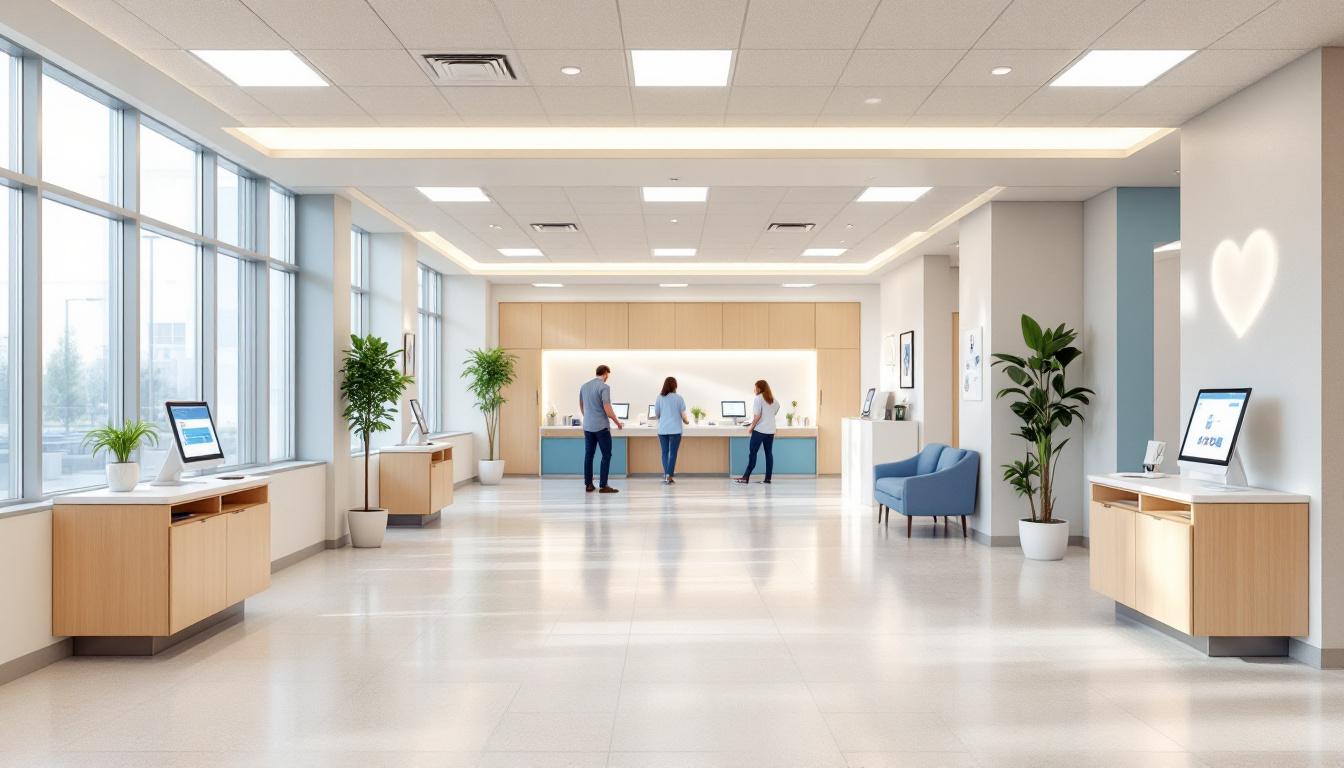Advantages of Getting Personalized Senior Support

Understanding the Value of Personalized Senior Support
As the aging population continues to grow, the importance of personalized support for seniors becomes increasingly evident. Tailored care plans and in-home services not only address individual health and social needs but also uphold dignity, promote independence, and enhance overall quality of life. This article explores the multifaceted benefits of personalized senior support, emphasizing how customized care transforms aging into a secure, engaging, and respectful experience.
Why Personalized Support Matters for Seniors

Why is personalized support important for seniors?
Personalized support is vital for seniors because it ensures their unique health, social, and emotional needs are fully considered. It promotes better well-being by tailoring care to each individual's circumstances. This approach fosters stronger relationships between seniors, healthcare providers, and their communities, giving seniors more control over their care choices.
When services are customized, they address long-term health conditions effectively and help manage common social issues like loneliness or social isolation. For example, social prescribing connects seniors to community activities and resources that bring joy, engagement, and mental stimulation.
Additionally, personalized care supports seniors in maintaining independence and participating actively in their lives. It creates a holistic, community-focused system of support that boosts health outcomes and enhances quality of life. Overall, tailored assistance helps seniors feel valued, respected, and empowered to live healthier, happier lives.
How Personalized Care Enhances Quality of Life

What are the benefits of personalized care for seniors?
Personalized care offers numerous advantages that significantly improve the lives of seniors. It begins with tailoring health and social services to match each individual’s unique needs, preferences, and life circumstances. This personalized approach empowers seniors by involving them in decisions about their care, fostering a sense of control and confidence.
A collaborative relationship between seniors, healthcare professionals, and community resources ensures that care is not only effective but also meaningful. This connection supports seniors in maintaining independence and overall wellbeing. For example, personalized plans often include social prescribing, connecting seniors with community activities, social interactions, and support networks, which help combat loneliness and mental decline.
By integrating various services—medical, social, and community—into a cohesive, person-centered system, personalized care enhances quality of life. It reduces hospital admissions by proactively managing chronic conditions such as arthritis, diabetes, or hypertension.
Additionally, flexible care plans can adapt as seniors' needs change, ensuring ongoing relevance and effectiveness. This holistic approach addresses physical health, emotional wellbeing, and social engagement,
In summary, personalized care creates a supportive environment that respects each senior’s unique story and needs. It leads to better health outcomes, greater satisfaction, and an overall improved quality of life—essentials for aging with dignity and independence.
The Role of In-Home Support in Senior Well-being
 Personalized in-home support is essential for promoting the health, safety, and happiness of seniors. When care plans are customized to fit an individual’s medical conditions, preferences, and daily routines, seniors experience a higher quality of life while maintaining their independence and dignity.
Personalized in-home support is essential for promoting the health, safety, and happiness of seniors. When care plans are customized to fit an individual’s medical conditions, preferences, and daily routines, seniors experience a higher quality of life while maintaining their independence and dignity.
In-home care allows seniors to stay in familiar surroundings, which reduces stress and enhances emotional well-being. Tailored support services encompass assistance with daily activities like bathing, dressing, and meal preparation, all designed around the senior’s unique needs. These individualized plans also focus on managing chronic diseases such as diabetes or arthritis, helping prevent complications and improving overall health.
Utilizing healthcare technology in home care further amplifies these benefits. Devices like telehealth applications, electronic health records, and remote monitoring systems facilitate better coordination among caregivers and health professionals. These tools enable real-time health assessments, medication management, and prompt intervention when needed. For example:
| Technology Tool | Function | Benefit |
|---|---|---|
| Telehealth | Video consultations | Increased access to medical advice from home |
| Electronic Health Records | Data sharing | Accurate, up-to-date patient information |
| Remote Monitoring Devices | Tracking vital signs | Early detection of health issues |
The integration of such technologies ensures that care remains dynamic, responsive, and effective. It helps manage chronic conditions, prevent hospital readmissions, and promotes safety by reducing falls and medication errors.
Overall, combining personalized in-home care with technology supports seniors’ independence, safety, and emotional health. It fosters closer communication among seniors, their families, and healthcare providers, leading to improved outcomes and a better quality of life.
How Personalized Care Fosters Independence and Dignity

Support with daily routines and personal care
Personalized care plans are essential for helping seniors maintain their independence and dignity. These plans include support with daily activities like bathing, dressing, grooming, and meal preparation. By receiving tailored assistance, seniors can perform these routines safely and confidently, which helps them retain their autonomy. For example, caregivers might adapt routines using adaptive devices or techniques suited to an individual's mobility, ensuring comfort and respect.
In-home care allows seniors to stay in familiar surroundings, reinforcing their independence while receiving personalized support. This environment also encourages participation in activities they enjoy, fostering a sense of normalcy and self-worth.
Management of chronic conditions
Chronic illnesses such as arthritis, diabetes, hypertension, or dementia require ongoing management. Personalized care plans are designed to monitor and adjust treatments, medication schedules, and lifestyle strategies to suit each senior’s medical history.
Targeted interventions, like specific exercises for arthritis or blood sugar management for diabetics, can prevent complications and reduce pain. Regular assessments ensure that care adapts to evolving health needs, minimizing hospital visits and promoting better health outcomes.
This approach respects each individual’s unique health challenges and promotes active participation in their health management, supporting independence.
Building trust and emotional support
A vital aspect of personalized care is fostering trust and emotional well-being. Consistent, compassionate interactions between caregivers and seniors help build strong relationships based on understanding and respect.
Providing companionship and engaging seniors in hobbies or social activities reduces feelings of loneliness and isolation. Family involvement also enhances emotional security, ensuring seniors feel valued and supported.
Through personalized, tailored interactions, seniors experience increased confidence, happiness, and a sense of control. This holistic approach promotes dignity, enabling elders to lead meaningful, independent lives with emotional support and trust.
Creating a Supportive and Engaging Environment for Seniors

Fostering social connections and community involvement
Personalized senior care emphasizes the importance of social engagement and community participation. Care plans often include activities that match seniors’ interests, such as hobbies, clubs, or social outings, which enhance mental stimulation and emotional well-being. Facilitating social interactions helps prevent feelings of loneliness and social isolation, promoting a sense of belonging and purpose.
Safety modifications at home
A safe home environment is fundamental to personalized care. This involves making tailored safety modifications like installing grab bars in bathrooms, rearranging furniture to prevent falls, and ensuring adequate lighting. These adjustments help seniors move around confidently and independently, reducing the risk of accidents and hospitalizations. Maintaining safety within a familiar setting contributes significantly to their overall comfort and peace of mind.
Involving families and caregivers
Family involvement is a cornerstone of effective personalized care. Care plans are developed collaboratively, ensuring they reflect the senior’s preferences and needs. Regular communication with family members keeps them informed about health and well-being, fostering trust and reassurance. Active participation allows families to support emotional, social, and medical aspects of care, strengthening bonds and improving outcomes.
How Does Personalized Senior Care Improve Quality of Life?
Personalized senior care enhances life quality by customizing health and social support to individual strengths, preferences, and circumstances. It enables active involvement in decision-making, boosting confidence and independence. Flexible, holistic plans that include family and community support foster a sense of empowerment and security. Incorporating social activities and safety measures ensures a balanced approach to physical health, emotional happiness, and social fulfillment.
| Aspect | Focus | Benefit | Additional Notes |
|---|---|---|---|
| Social Engagement | Community activities & hobbies | Reduces loneliness, boosts mood | Tailored to interests and capabilities |
| Home Safety | Modifications like grab bars | Prevents falls, enhances confidence | Based on individual home layout |
| Family & Caregiver Involvement | Collaborative care planning | Builds trust, ensures preferences respected | Regular updates and participation |
| Health & Emotional Support | Holistic, adaptable plans | Improves well-being, promotes independence | Adjusts to evolving needs |
Transforming Aging with Personalized Support
The advantages of personalized senior support extend far beyond basic assistance. Tailoring care to individual needs fosters independence, preserves dignity, and significantly improves quality of life. Innovative approaches that incorporate health management, emotional well-being, community engagement, and advanced technology create a supportive environment where seniors can thrive in their later years. As the aging demographic grows, embracing personalized care models will be crucial for delivering effective, compassionate, and respectful aging support, ensuring seniors live with confidence, comfort, and dignity.
References
- The Benefits of Personalized Home Care Services
- Why are Personalized Care Plans for Seniors so important?
- Why Personalized Elderly Care is Must in Long-Term Health?
- Why Seniors Thrive with Personalized, One-on-One Care
- The Advantages Of Personalized Care Plans In Senior Care Homes ...
- Why Personalized Home Healthcare is Essential for Elderly Care
- What Are The Benefits Of Senior Home Care? - Big Hearts Homecare
- Enhancing Senior Well-being Through Personalized In-Home Care ...
Recent articles
Want to Feel Better and Live Healthier?
Join hundreds of patients taking control of their health with personalized care that fits their life – not the other way around.
Rated 4.8/5 by 32+ customers







